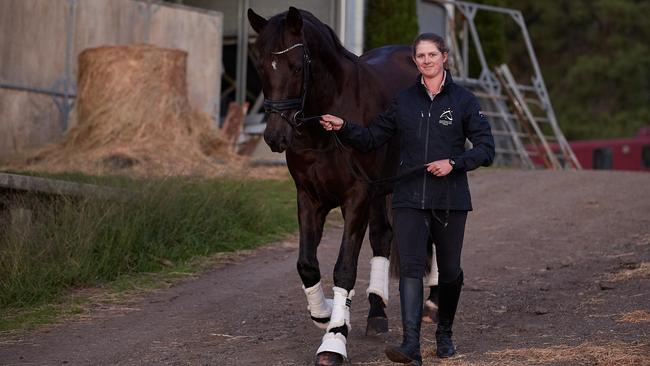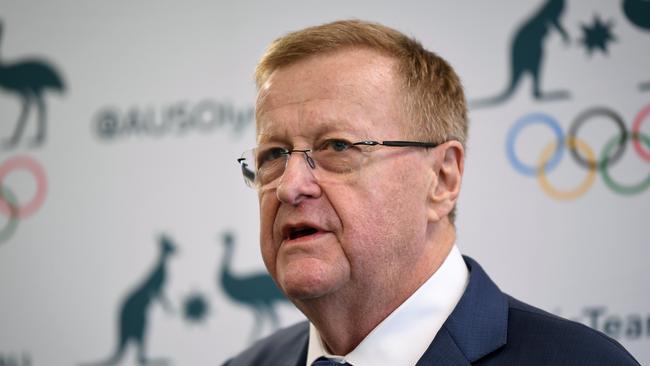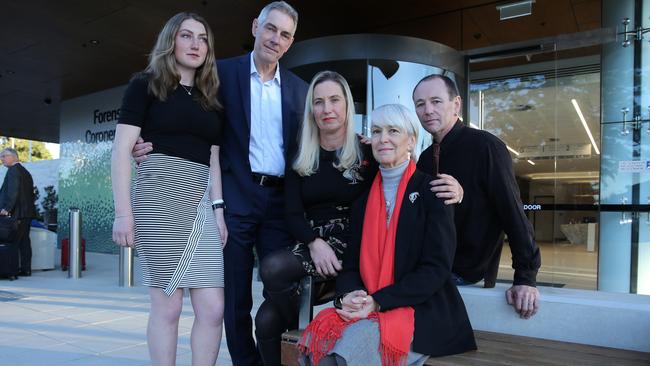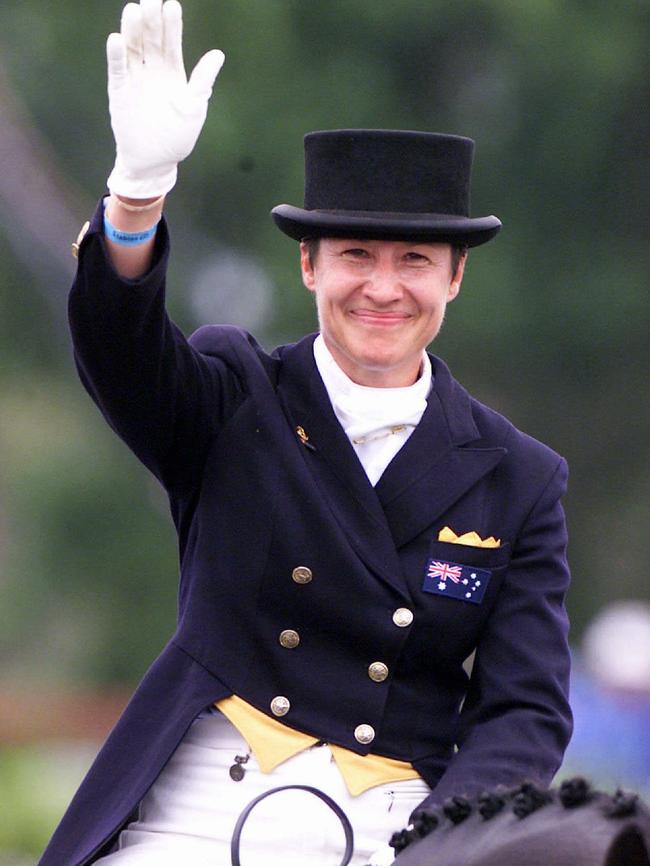Australian Olympic Committee sends warning to Equestrian Australia to lift their game
The AOC has threatened to block sending an equestrian team to the Tokyo Olympic Games.

The Australian Olympic Committee has threatened to permanently withdraw Equestrian Australia’s accreditation and block sending a team to the Olympic Games unless the embattled body meets a list of demands to improve the sport’s governance.
The sport, which has delivered Australia 12 Olympic medals, including six golds, was thrown into turmoil last week when the national body entered voluntary administration just six weeks out from when the Tokyo Games were supposed to have started.
The shock announcement came days after Sport Australia sent a letter to the body on June 3, declaring it would cease pouring money into an organisation that has been wracked by dysfunction and shoddy governance.
AOC president John Coates branded the collapse an “unprecedented disaster”.
He said athletes could be nominated for the Olympics only by a sporting body and not by an administrator or the Australian Institute of Sport, which is now overseeing the high performance training program.

Queensland rider and Olympic hopeful Hazel Shannon, who last year created history when she became the first person to win the prestigious Adelaide three-day event three times, said she would be devastated if an Australian equestrian team was not sent to Tokyo next year.
“That would devastate me along with any other Olympic hopefuls who have dedicated their lives to this sport,” Shannon, 28, said.
“Producing a horse to the Olympic level takes years and years of yours and a horse’s life.”
In a letter from AOC chief executive Matt Carroll to KordaMentha administrator Kate Conneely on Monday, Mr Carroll said Equestrian Australia’s AOC membership would not be automatically reinstated.
He said such a move would only be considered if the body was re-accredited by the international equestrian federation and if Equestrian Australia improved participation, governance and safety from its grassroots to the professional level.
While Shannon said she liked to stay out of the politics and was focused on her sport, she believed a strong organisation was integral to the success of riders when representing Australia. “I hope it’s resolved and the riders aren’t impacted negatively,” she said.
Equestrian Australia, which has received $13m in taxpayer funds over the past four years, will also have to show it is conducting its activities in compliance with the AOC constitution, the Olympic Charter and the rules of the international body Federation Equestre Internationale.
Last year, The Australian revealed Equestrian Australia had breached the FEI’s safeguarding policy when it refused to suspend the membership of prominent eventing rider Callum Buczak after he was charged with raping another rider. Equestrian Australia only moved to bar the athlete, who had continued to compete, after the FEI intervened.
Meanwhile, the coronial inquest into the deaths of teenage riders Olivia Inglis and Caitlyn Fischer found the jump Olivia fell and died at breached five international guidelines.
Her mother, Charlotte Inglis, an accomplished rider herself, had raised concerns about five of the jumps, including the fence her daughter fell at before Olivia competed, but no changes were made.

The June 3 letter, co-signed by Sport Australia chief executive Robert Dalton and Australian Institute of Sport chief executive Peter Conde, said funding would no longer flow to the body as governance “had fallen well short of acceptable standards”.
“In our view it is the fundamental structure of sport’s national governance that has proven itself manifestly unfit for purpose and now needs to be overhauled,” the letter reads. “No other sport funded by the ASC (Australian Sport Commission) has experienced this level of board turmoil. It is self-evidently an unacceptable situation that does not serve the interests of the sport.”
The board has cycled through a staggering number of members in just 16 months, with three chairs and eight directors resigning over the period.
The June 3 letter also flagged the ASC’s commitment to improving safety standards across the sport, including a grant to employ a safety officer to implement the 31 recommendations arising from the coronial inquest.

A meeting with creditors on Friday will determine if Craig Shepard and Kate Conneely stay on as administrators and whether an independent inspectors committee will be installed to oversee the administration process.
Former chair Ricky MacMillan is calling on riders to elect her to the inspection committee.
Macmillan represented Australia in dressage in Sydney and Athens and was considered the sport’s saving grace when she was elected chair.
One of the four remaining directors, Equestrian Australia spokesman John Glenn previously told The Australian the board had been courageous in choosing to enter administration after nearly a decade of problematic governance.
“Without significant change, insolvency was inevitable,” Mr Glenn said. “It wasn’t a decision that was taken lightly and we hope to come out with a restructured sport and have funding returned.”
Caitlyn, who died when competing in a one-star level event on April 30, 2016, would have turned 24 on Tuesday.




To join the conversation, please log in. Don't have an account? Register
Join the conversation, you are commenting as Logout